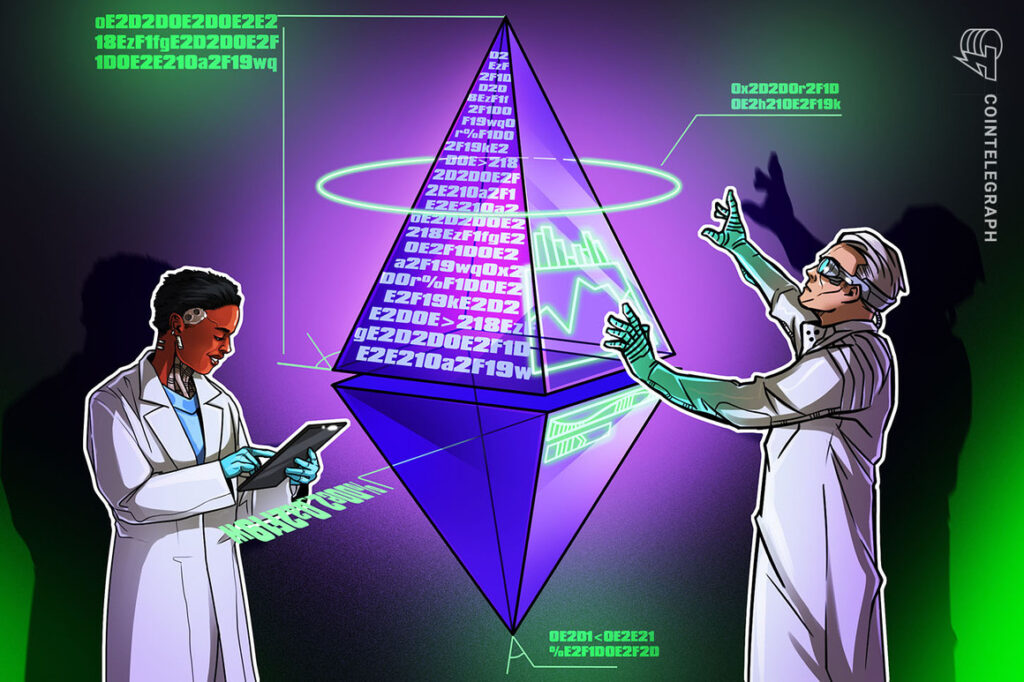[ad_1]
Ether (ETH) rallied 35% over the past ten days and reclaimed the critical $2,300 support, but the crucial $2,450 local top hasn’t been tested since June 17. Part of the recent recovery can be attributed to the London hard fork, which is expected to go live on Aug. 4.
Traders and investors view the EIP-1559 launch as a bullish factor for Ether price because it is expected to reduce gas fees. However, Ether miners are not thrilled with the proposal because the proof-of-work model will no longer be necessary after ETH2.0 goes live.
The network fees will automatically be set, although users can choose to pay extra for faster confirmation. Miners (or validators in the future) will receive this additional fee, but the base fee will be burned. In a nutshell, Ether is expected to become deflationary.
While it’s difficult to identify the main drivers of the recent rally, it is possible to gauge professional traders’ sentiment by analyzing derivatives metrics.
If the recent price move was enough to instill confidence, the futures contracts premium and options skew should clearly reflect this change.
Bullish sentiment is missing even after futures contracts entered contango
By analyzing the price difference between futures contracts and regular spot markets, one can better understand the prevalent sentiment among professional traders.
The 3-month futures should trade with a 6% to 14% annualized premium on neutral to bullish markets, which is in line with stablecoins’ lending rate. By postponing settlement, sellers demand a higher price, and this causes the premium.
Whenever the futures premium fades or turns negative, it raises an alarming red flag. This situation is also known as backwardation and indicates that there is bearish sentiment.
The above chart shows that the Ether futures premium flipped negative on July 20 as Ether tested the $1,750 support. However, even the massive rally up to $2,450 wasn’t enough to bring the September contract premium above 1.3%, equivalent to 8% annualized.
Had there been some excitement, the annualized futures premium would have been at 12% or higher. Therefore, the stance of professional traders seems neutral right now and is flirting with bearishness.
To exclude externalities exclusive to the futures instrument, traders should also analyze options markets.
Options markets confirm that pro traders are not bullish
Whenever market makers and whales lean bullish, they will demand a higher premium on call (buy) options. This move will cause the 25% delta skew indicator to shift negatively.
On the other hand, whenever the downside protection (put option) is more costly, the 25% delta skew indicator will become positive.
Readings between negative 10% and positive 10% are usually deemed neutral. The indicator had been signaling ‘fear’ between May 20 and July 19 but quickly improved after the $1,750 support held.
Despite this, the current 25% delta skew at negative 4 isn’t enough to configure a ‘greed’ indicator. Options markets pricing is currently well balanced between call (buy) and put (sell) options.
Both derivatives metrics suggest that professional traders gradually exited the ‘fear mode’ on July 20, but they are nowhere near bullish.
Currently, there is little confidence in the recent rally from these metrics’ perspective, which is understandable considering the risks presented by the upcoming hard fork and the uncertainty caused by unsatisfied miners.
The views and opinions expressed here are solely those of the author and do not necessarily reflect the views of Cointelegraph. Every investment and trading move involves risk. You should conduct your own research when making a decision.
[ad_2]

